studying towards the JLPT N1 (eventually) to be a Japanese translatorI track #onigiristudies note: this is a sideblogfollows from @dirtynamjams
Don't wanna be here? Send us removal request.
Text
~はもとより~も
JLPT N2 Grammar
使い方 Noun はもとより ~も
意味 also; let alone; from the beginning
① (positive) also
② (negative) let alone
③ from the beginning, all along, of course
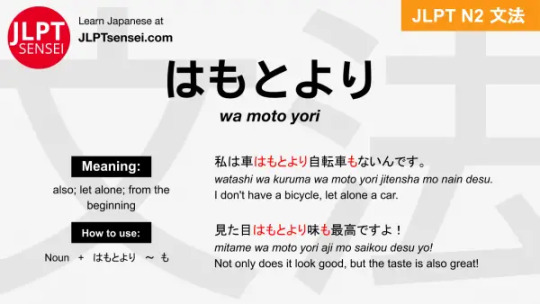
例文
① (positive) also
キャベツはサラダで食べるのはもとより、炒めても美味しい。 キャベツ は サラダ で たべる の はもとより、いためて も おいしい。 Cabbage is of course good in salad, but it is also good in stir-fry.
② (negative) let alone
私が生まれた村は、電車はもとより、バスも全然ない。 わたし が うまれた むら は、でんしゃ はもとより、バス も ぜんぜん ない。 In the village I was born in, there are not even trains, let alone buses.
③ from the beginning, all along, of course
僕はもとより知っていた。 ぼく はもとより しって いた。 I knew from the very beginning.
JLPT先生
63 notes
·
View notes
Text
Yes, we do also have an English/Japanese literature book club. Sometimes it'll be the English translation of what we're reading in the Japanese book clubs, or it could just be a novel that focuses/takes place in Japan.
Oftentimes, it's an English-translation of a Japanese novel.
Seitokai’s May English Book Club
This month we're reading How Do You Live? by Genzaburo Yoshino! Join us for this read in Seitokai’s Discord!

First published in 1937, Genzaburō Yoshino’s How Do You Live? has long been acknowledged in Japan as a crossover classic for young readers. Academy Award–winning animator Hayao Miyazaki (Spirited Away, My Neighbor Totoro, Howl’s Moving Castle) has called it his favorite childhood book and announced plans to emerge from retirement to make it the basis of a final film.
Feel free to message me or @onigiriforears for information!
23 notes
·
View notes
Text
Thank you so much for always helping!
COME JOIN US AND WATCH EVERYONE SCREAM OR CRY AT THE SAME SCENES
Seitokai’s May Japanese Manga Book Club
This month we're reading 葬送のフリーレン 1! Join us for this read in Seitokai’s Discord!

The adventure is over but life goes on for an elf mage just beginning to learn what living is all about.
Elf mage Frieren and her courageous fellow adventurers have defeated the Demon King and brought peace to the land. But Frieren will long outlive the rest of her former party. How will she come to understand what life means to the people around her?
Decades after their victory, the funeral of one her friends confronts Frieren with her own near immortality. Frieren sets out to fulfill the last wishes of her comrades and finds herself beginning a new adventure…
Feel free to message me or @onigiriforears for information!
#seitokai bookclub#bookclub#japanese literature#manga#learning through immersion#learning through reading#reading comprehension#learn through reading#frieren#sousou no frieren#葬送のフリーレン
18 notes
·
View notes
Text
Seitokai’s May Japanese Novel Book Club
This month we’re reading ちょっと今から仕事やめてくる by Kitagawa Emi! Join us for this read in Seitokai’s Discord!

This novel is a "life-supporting story for all working people".
A young Japanese salaryman is suffering abuse and mental distress at a black company. The stress overwhelms him and he throws himself onto the train tracks. At the last minute, he is saved by someone calling himself Yamamoto. He befriends the man, who has a carefree, happy life, but as he gets to know the man he realizes things are not what they seem.
This novel won the 21st Dengeki Novel Award, and has been read widely by the Japanese language learning community. The novel even has a sequel.
Feel free to message me or @onigiriforears for information!
#seitokai bookclub#bookclub#learn through reading#learn through immersion#japanese#ちょっと今から仕事やめてくる#japanese novel#japanese literature#come join us in the discord#target language#reading comprehension
36 notes
·
View notes
Text


Today, 21 April, is ‘Kawane-cha (Shizuoka tea) Day’, as it falls on the 77th night counting from the first day of spring. The stamp introduced here is “Tea Picking” (issued in 1997), and you can almost hear the lively voices of tea pickers coming from the tea fields in this long-awaited season.
今日4月21日は、立春から数えて七十七夜にあたることから「川根茶(静岡茶)の日」だそうです。 紹介する切手は「茶摘み」(1997年発行)で、待ち焦がれた季節に茶畑から聞こえてくるお茶摘みさんたちのにぎやかな声が聞こえてきそうです。
#stamps#japanese history#japanese culture#learn japanese#reading comprehension#learn through reading
45 notes
·
View notes
Text
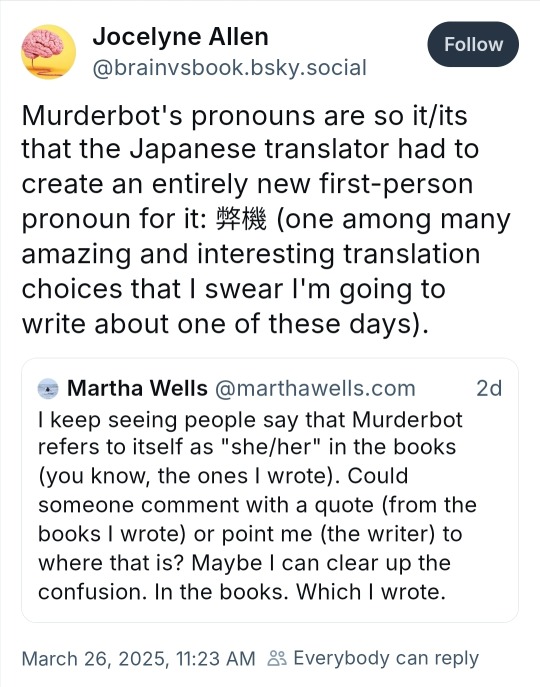
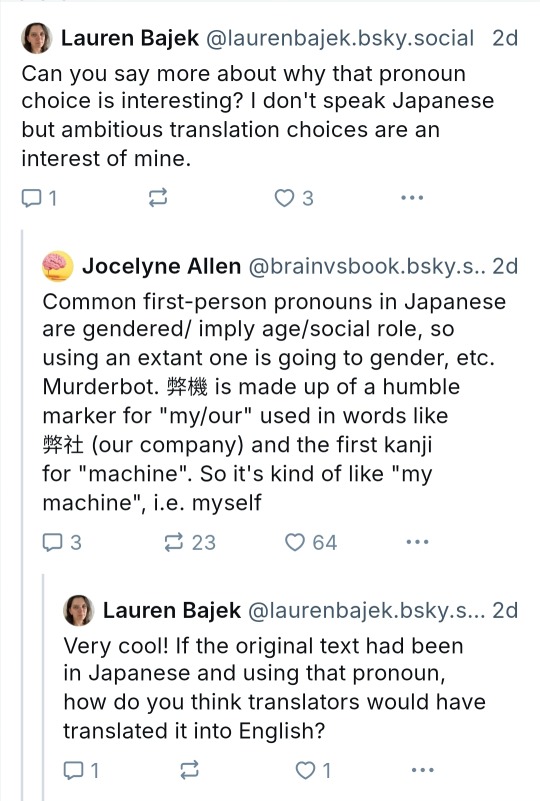
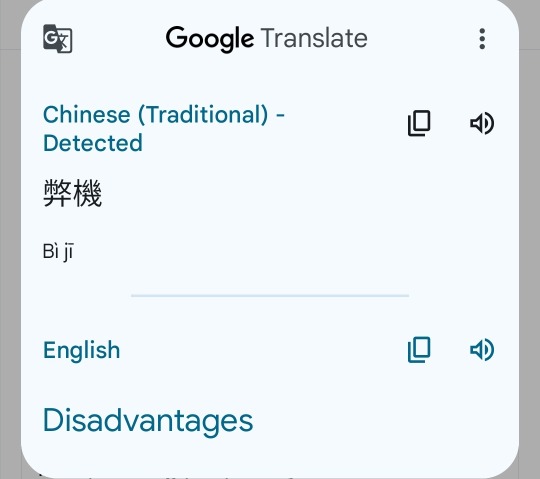
link: https://bsky.app/profile/brainvsbook.bsky.social/post/3llc72lyhu22j
google translate defaulting to chinese at first
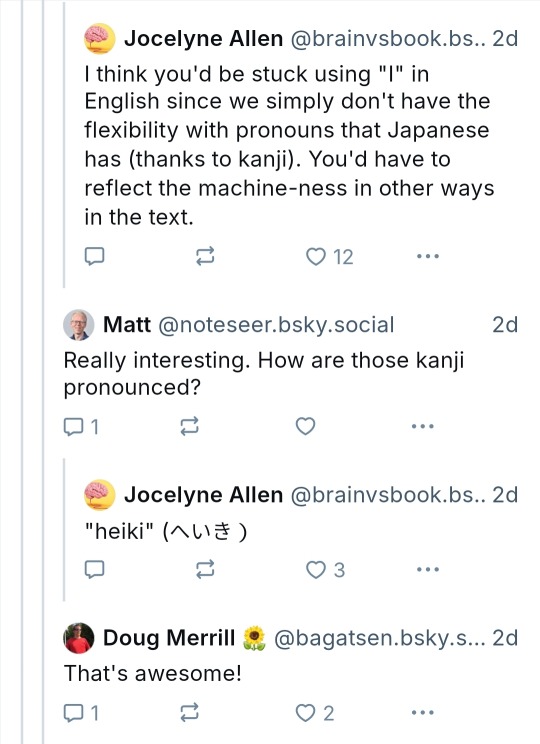
okay but for those of us with interests in both the murderbot and the daomu biji fandoms this is kinda hilarious
(english-side-only really, i get that the kanji and hanzi are completely different)
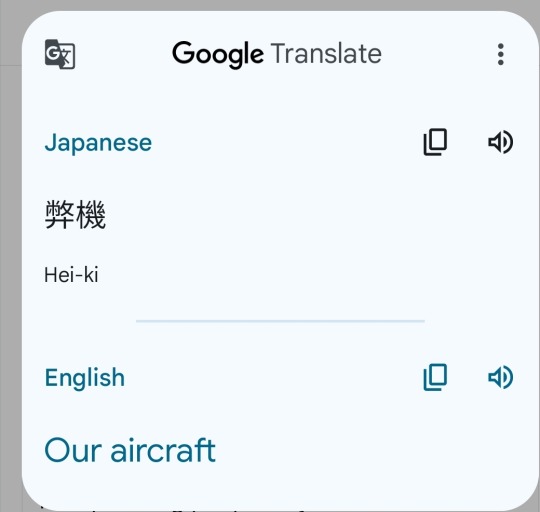
our good (air)ship murderbot! thanks google
32K notes
·
View notes
Text
Onoré-sho (writing as one likes)

Here's an example of a Japanese calligraphy style that's easy to do!
The style is called "onoré-sho".
"Onoré" is an old-fashioned and rather forceful way to refer to oneself.
Onoré-sho emphasises a sense of freedom, doing things in one's own way.
With onoré-sho the artist is free to play around with the relative size, shape and orientation of the characters, and even of the components within each character.
The only real guideline is that the characters fit together like a puzzle.
The end result is that it can be difficult to read at first glance - like a puzzle.
Can you read the example above?
56 notes
·
View notes
Text
隠れ家
かくれが
① hiding place; hideout; refuge
② retreat; hideaway
外の隠れ家のスペアキーを持っている。 そと の かくれが の スペアキー を もって いる。 I have a spare key to my house in a hiding place outside.

9 notes
·
View notes
Text
I will warn you: this post gets pretty deep into the weeds talking about the copula and how it is constructed; if you don’t need to understand something in extreme depth to feel satisfied, this post probably won’t be for you. But if you’re like me and feel things click and become more intuitive when you really deeply understand how it all goes together like a puzzle, hopefully this will help you! If you’re interested in super technical linguistic-y stuff, you’ll probably enjoy this.
25 notes
·
View notes
Text
深刻
しんこく
serious; severe; grave; acute
現在最も深刻な問題は人口過剰の問題である。 げんざい もっとも しんこく な もんだい は じんこう かじょう の もんだい である。 The most severe problem at present is that of overpopulation.

29 notes
·
View notes
Text
Japanese Lesson of the Week (4/9)
Alright, it’s time to talk about particles! I know, it’s the day everyone has been waiting for. Who doesn’t love learning about grammar??? Today’s lesson is gonna be a little bit unique compared to the other “parts of speech” lessons because everything discussed will be the same part of speech, but the use cases will be different. You’ll be using all of these particles in the same way, and…
6 notes
·
View notes
Text
reminder that i track the tag #onigiristudies 🤗
3 notes
·
View notes
Text

Hi @nothing-an-iratze-cant-fix! I did some searching and found for some books for 10 year olds...I haven't found anything that's gone to 6 year olds, yet. I only put the Amazon link because it lets you preview the books, but there are probably other places you can purchase these. Since these books are written for native speakers, you'll definitely pick up a ton of new vocab even outside of the ones that the books are expressly teaching. Keeping in mind that it's also written for 10 year olds, these books have furigana over all of the kanji. The phrases 10歳までに or 10歳から should be able to help yield results for them.
▷I want to note that I do not own the books available beneath the break and that I have only researched them (and requested for them to be added to the Japan Foundation's Libby ;) ).
I think that 10歳までに身につけたい 自分の気持ちを上手に伝える ことばの魔法図鑑 looks very cute and helpful! This book is dedicated to learning words to describe your feelings and express your emotions properly, divided into 3 chapters. When I previewed it, it also seems like it may beneficial for grammar as well. (With a magical theme!) The graphics are filled with these adorable little magical bunnies, dogs, and cats. The set up is very simplistic and adorable. There also seems to be some おまけ and "missions" within the book.
Here's a peek:



There's also 小学生おもしろ学習シリーズ まんが10歳までに覚えて差がつく 言葉大辞典1070. This particular one is 1,070 words and/or phrases that you can learn in a manga format. While I was previewing the book, it made sure to show that it also includes some fun activities.
Here's a peek:



I hope your studies go well!
Vocab pt. 1 | 「伝える力」が伸びる! 12歳までに知っておきたい語彙力図鑑


I've recently started reading 「伝える力」が伸びる! 12歳までに知っておきたい語彙力図鑑 (or what I only refer to as "Words You Ought to Know as a 12-year old") as a means to up my vocab game before the JLPT.
I'll probably post a review about the book once I actually finish it.
But in the meantime, here are some of the words that I learned just from reading the sections about how to use the book and all 5 of it's sections. I was quite pleased at the amount of words that I've already learned (and how many of them were N2 words).
語彙力 (ごいりょく)- (the extent of) one's vocabulary
図鑑 (ずかん)- field guide; illustrated reference book
目指す (めざす)- to aim at (for; to do; to become); to try for
各 (かく)- each, every, all [prefix]
繰り返す (くりかえす)- to repeat; to do over again
基礎 (きそ)- foundation; basis
言い換える (いいかえる)- to say in other words; to put another way; to rephrase
言い換え (いいかえ)- putting in other words; paraphrase; rephrasing; rewording
状況 (じょうきょう)- state of affairs; circumstances; situations; conditions
鍛える (きたえる)- to drill; to train; to discipline; to forge; to temper
変換 (へんかん)- change; transformation; conversion
観察眼 (かんさつがん)- observing eye
目の付け所 (めのつけどころ)- focus of one's attention; what one is looking for; viewpoint; point one is trying to make
文豪 (ぶんごう)- literary master
候補 (こうほ)- candidate; contender; prospect; pick; choice; list
まつわる- to be related; to concern; to be associated with
登場 (とうじょう)- entrance; appearance; arrival
表現 (ひょうげん)- expression; representation; description; representation (of a group)
解決 (かいけつ)- settlement; resolution; solution
ワンパターン - following a single pattern; conforming to the same pattern; repetitive; stereotyped; predictable [Wasei-eigo]
Hopefully, I'll be able to consistently post some of the vocab lists that I continue to compile for this. I'm in the Step 1 section of the book where it gives you synonyms and explains the connotations behind them/situations in which to use them. The first section I read was for やばい~
#vocab#learning through reading#language immersion#learning through immersion#reading comprehension#japanese#look toki#learn japanese#study japanese#onigiri replies#ah queue! bless you
92 notes
·
View notes
Text
[grammar] うちに入らない
Upon reading Murakami’s 1Q84, I came across the following sentence:
鍵はかかっていたが、鍵のうちには入らないようなものだった。
I couldn’t make sense of the second part of the sentence, so I asked my Japanese friend for help.
Apparently, Nのうちに入らない means something like “can’t be regarded as N” or “not really a N”. So, you might translate the sentence as, “It was locked, but it wasn’t much of a lock.”
This phrase seems to be more often used with verbs, as in Vたうちに入らない, rather than with nouns.
My friend also mentioned that Japanese teachers often use this phrase when students haven’t done something properly, e.g., cleaning the classroom:
こんなのやったうちに入らないだろ! You can’t seriously think this counts as cleaning, right?!
When I thanked my friend for the help, he replied with:
こんなの助けたうちにも入らねーぜ。 This doesn’t even count as helpin’, man.
After some further research, I discovered that this is actually considered an N1-level grammar point.
Has anyone else encountered this phrase before? If so, let me know the context in which you’ve seen it!
202 notes
·
View notes
Text
接続詞(せつぞくし)
conjunctions - words that are used to link phrases together
情報を加える // Adding information:
しかも besides そのうえ moreover, on top of that さらに moreover, on top of that そればかりか not only that, but also... そればかりでなく not only that, but also...
情報を対比する // Putting into contrast:
それに対して in contrast 一方 whereas
他の可能性・選択肢を言う // Giving alternatives:
あるいは or perhaps (presenting another possibility) それとも or (presenting another option within a question)
結論を出す// Drawing a conclusion:
そのため for that reason したがって therefore そこで for that reason (I went ahead and did...) すると thereupon (having done that triggered sth. to happen) このように with this (adjusting a conclusion to the arguments given beforehand) こうして in this way
理由を言う // Giving a reason:
なぜなら...からだ the reason is というのは...からだ the reason is
逆説を表現する // Expressing a contradiction:
だが however, yet, nevertheless (contradicting what one would have expected) ところが even so (spilling a surprising truth) それなのに despite this, still それでも but still (despite a certain fact, nothing changes)
説明を補う // Amending one's explanation:
つまり that is, in other words (saying the same thing using different words) いわば so to speak (making a comparison) 要するに to sum up, in short
説明を修正する // Revising one's explanation:
ただし however (adding an exception to the information stated beforehand) ただ only, however もっとも however (obviating any expectations that might arise through the previous statement) なお in addition, note that (adding supplementary information)
話題を変える // Changing the subject:
さて well, now, then (common in business letters after the introductory sentence; is often ignored in tranlations) ところで by the way
1K notes
·
View notes
Text
Question for my fellow language-learners. When did consuming media in your target language stop feeling like "studying"?
78 notes
·
View notes